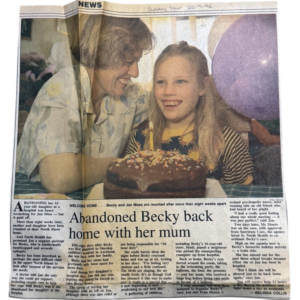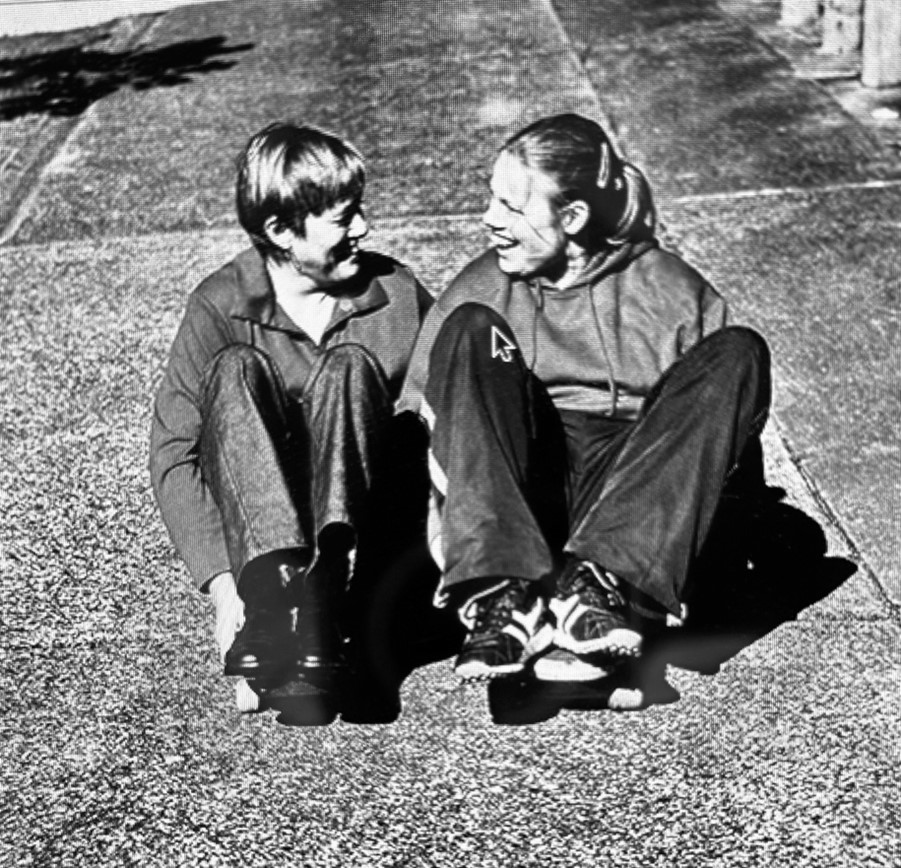Jan Moss MNZM – Caring for family carers
by Laurie Hilsgen, Carers NZ
August 2025
When I lose someone vital in my life I think of the Maya Angelou poem When Great Trees Fall.
When great trees fall, rocks on distant hills shudder … Our minds, formed and informed by their radiance, fall away.
A great tree of Aotearoa’s carer movement, Jan Moss, passed away last week.
Her death was both expected and unexpected.
Her cancer diagnosis had come out of the blue, without symptoms.
“I don’t feel I’m going to die imminently even though that’s my prognosis,” the former RN said matter of factly as we sat in the sun at her Takapuna home.
Jan had lots of plans and was still closely involved in supporting her daughter Becky, who has complex disabilities, with the tremendous help of her other daughter Heidi, her husband Daniel, and their children.
While more time was not to be, Jan’s legacy for family carers will never be lost, and I will never lose Jan. We shared too much for that.
I met Jan in the early years of Carers NZ. She sent me a letter, with Dr Anne Bray’s groundbreaking report, Just Surviving (Donald Beasley Institute, 2000). Anne was, like Jan, a foundational person in our country’s carer movement. Just Surviving gave voice to the issues and urgency of improving supports for disabled people with complex needs and their families. It led to the formation of the Complex Care Group, Jan’s involvement as long-time chair of Carers NZ, and our friendship. When I received Jan’s letter asking how we could work together, we were both worn out family carers – surely things could be better for us and for all carers? That simple question drove us both.
As the years flowed by, Jan and her family managed crisis after crisis. Lack of services. Indifferent services. Abuses in care for Becky, requiring advocacy and formal complaints by Jan. Lack of respite so Jan could rest. Lack of support when Jan herself developed health concerns. And always the thought of Heidi and wanting to be a good Mum to her, too, despite the constant pressures to ensure Becks was happy, safe, and well supported. And so life went on.
I had many, many experiences with Jan over 25 years. She was more than a friend. More than a colleague. More than a sister, even. Jan was a warrior. She inspired me. She taught me. Sometimes we argued. Once we didn’t speak for a long time. But in such relationships of shared trials and battles, a bedrock of trust formed that I have with just a few people in my life.
Early on, Jan was a smoker. She agreed to make a short digital story about a life-defining moment as a family carer. She had to write the script on one side of a small index card. We sat together in Wellington on a windy day. The blank card flapped in one hand; she held a pen and a cigarette in the other, thinking, focused, puffing. Filming would begin in half an hour.
Suddenly she dropped the cigarette and started writing. She finished the script in 15 minutes – it simply flowed onto the card. “When it first happened, I thought I was immortal. This was my lot, and I had to cope…”
Her story was about one of the bleakest times, when caring so intensely led Jan to abandon Becks at Starship Hospital, a deliberate act to raise awareness of the strains of complex caregiving in families like hers.
Over time, the lack of thoughtful support for Becks and her family continued to take an unfair toll. Like many complex carers, Jan spoke openly about the possibility of homicide-suicide. Such cases happen in New Zealand, but they are often referred to in media reports as ‘mercy killings’. We need to more openly look at what leads to such extreme actions. Causes for carers to even consider homicide-suicide are long-term burnout, inadequate shallow supports for their family member, and not caring enough for those who care too much. As a country we need to face this dark truth and do better; it will take effort, it will cost money, and it’s the right thing to do.
I know Jan spent hours talking to other carers about this – talking them down, talking them away from the edge. Not everyone has the minerals to have such conversations, especially when you don’t feel strong yourself. “All I can do is listen, darling. It’s what keeps people going.”
When I talk to stressed family carers I often channel Jan. I have been a 24/7 carer too, but not for so long or at the medical and behavioural support intensity she experienced. I didn’t spend weeks sleeping on the floor at Starship Hospital because staffing was inadequate to support someone with very high needs like Becks. I didn’t fill in endless times when support staff were sick, or quit, or services abandoned ship. This is what many don’t understand about family caregiving. This is why it’s such a precious, priceless role. As we sat in the sun in her Takapuna lounge we clinked glasses and expressed again our mystification that New Zealand’s 1m+ family carers are still so invisible, so taken for granted, despite NZ having had a Carers’ Strategy since 2008.
New Zealand’s respite system remains fragmented and broken. Carer wellbeing is the lowest we have seen it, with more than 70% of family carers experiencing depression and anxiety, and more than 90% saying they feel isolated and lonely. More than 40% are injured in their role. Although more than 90% are of workforce age, many can’t do paid work because they already have a job – they are family carers, unable to save for retirement, breathing life into concepts like ageing in place and community-based care. Their mostly unpaid work has an annual economic value of at least $17.6 billion. We need them, not just for their labour, but because they represent the best of who we are as New Zealanders. When services fall away, when support workers finish their shifts, the family carers remain, often 24/7. What would we do without them?
I have spoken to thousands of carers since forming Carers NZ in 1994. Carers are not saints. They don’t see themselves as angels or martyrs. But they are very special, and they should be supported properly. Jan devoted her life to ensuring this for the carers who most deserve to be appreciated and sustained – the 24/7 complex carers.
After completing her digital story, Jan stopped smoking cold turkey. “I released something that day and didn’t need to smoke anymore.”
Fascinating, what we hold inside, how it affects us, and how we release what no longer serves us.
Jan was softly spoken. Feminine. Thoughtful. Smart.
She was curious and creative.
She adored her family.
She appreciated guitar music. She liked travel, new experiences, and good company.
She was forensic in her views, a laser beam when something needed to happen. But she was also philosophical. Realistic. Getting mad served a purpose only if it achieved a wanted outcome.
Just once did I see her give someone a death stare that should have turned the target to stone: Jan Moss in full shield maiden mode.
But there was none of that when we met not long before she died.
We shared fish and chips from the shop up the road.
We spoke about the relinquishment of my long relationship, and she gave me a Jan look with those remarkable blue eyes.
“Darling, I’m of the view that we’re better off without them.”
And then we laughed and laughed.
Because sometimes in life that’s all you can do.
And that’s how I’ll remember Jan: shield maiden, mother, grandmother, friend.
Top photo: Jan and Becks, from Terry Winn’s Caring Moments collection, a project with Carers NZ

